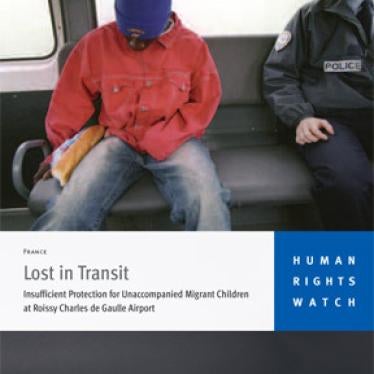When I interview Afghan children who make their journey alone to Europe I'm almost always drawn into a family history that intersects with the myriad conflicts that have made life in Afghanistan so difficult and dangerous. Ten days ago, two sisters, ages 16 and 17, burst into tears and told me they didn't know where to begin when I asked them why they left their country. They were reacting to the ruthlessness of the person who helped smuggle them across borders, their separation from their mother on the way to Europe, and being dumped in the middle of the night in an unknown city.
They don't know where their mother is or whether she made it to safety, and they were terrified that the people who harassed and severely threatened them back home, and who caused their family to flee, might catch up with them.
That a growing number of European countries, including the UK, now plan to deport Afghan children who arrive alone to a reception centre in Kabul comes as a bad surprise. The British Government cloaks these plans with statements of good intentions and claims that deporting children will prevent others from making these hazardous journeys. While it looks like a tantalisingly simple solution to open a centre in Kabul where these children are housed, fed, and receive reintegration assistance, this approach raises serious concerns. Instead of discouraging children from setting out on such a dangerous journey, it could have the opposite effect.
First, in a country with no functioning child protection system, thousands of children in Kabul are in need of services provided in a centre like that, but they won't be able to access them - unless they migrate to the UK and are then deported. Second, child rights organisations actively discourage institutionalising children and most European countries, including the UK, have moved away from this approach in their own countries. And the British Government's claim that returning children will lead to fewer arrivals in Europe is based on an assumption that these children could have chosen to stay where they were. But it is clear that many of them felt they had no choice at all.
Afghanistan has had almost continuous conflict for several decades. Many Afghan children who come to Europe are second or third generation refugees who hardly remember "their" country because they were born or have lived most of their lives in Iran or Pakistan, where they often face dangers or the threat of deportation. Many of the children I interviewed who did travel from Afghanistan to Europe said they fled the wrath of local strongmen who terrorise villagers with complete impunity, discrimination against minorities, fear of revenge killings or serious threats of exploitation.
Understanding each child's story is the first step to finding a long-term solution for that child. At the very least, that requires providing these children with guardians and lawyers who can represent and defend their interests against those of immigration officials arguing for their deportation. While returning a child to his or her country of origin might be the right thing to do, it requires a very careful assessment, especially when that child is unaccompanied and where a return would be to a country with high security risks. Instead of investing millions in a handful of what are effectively orphanages in Kabul, the British and other European governments should provide protection to children in need who are in Europe already and make long-term commitments to help local governments in Afghanistan address the needs of all of the country's children.
Unaccompanied children like the two sisters I interviewed need what is a given for most of us and for our own children: a chance to lead a secure and normal life. A centre in Kabul won't fix that.






